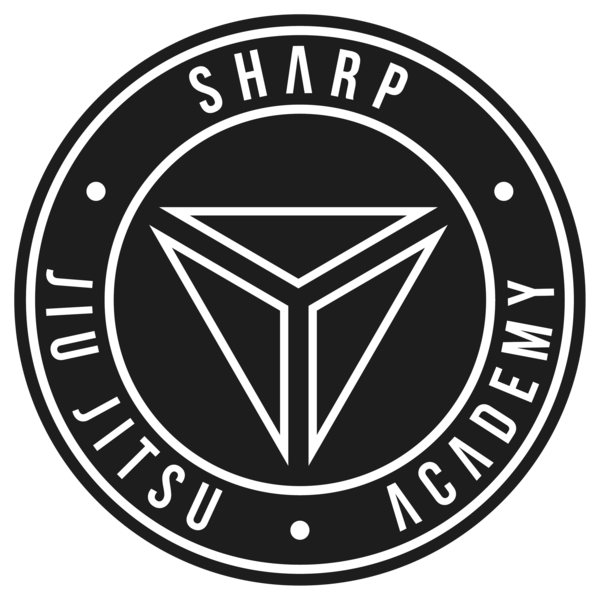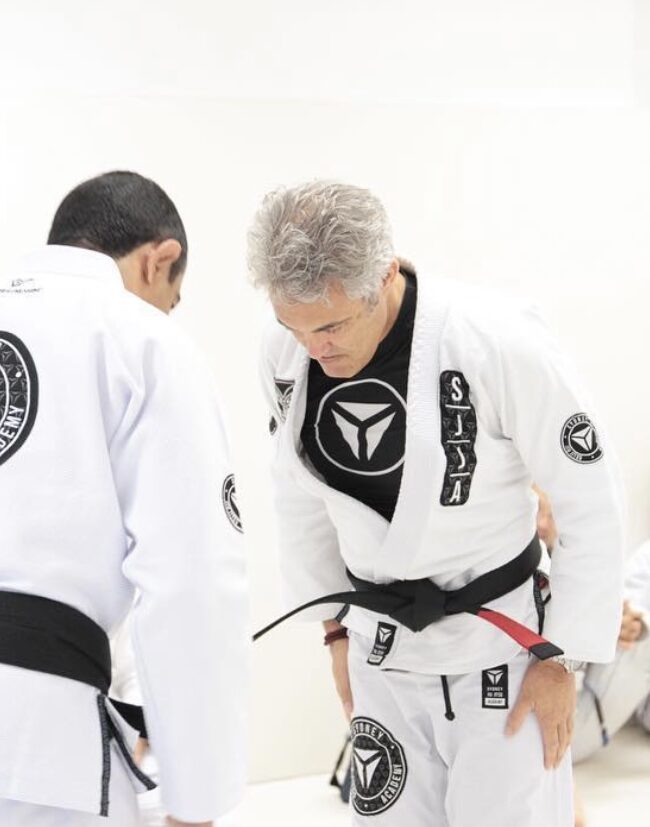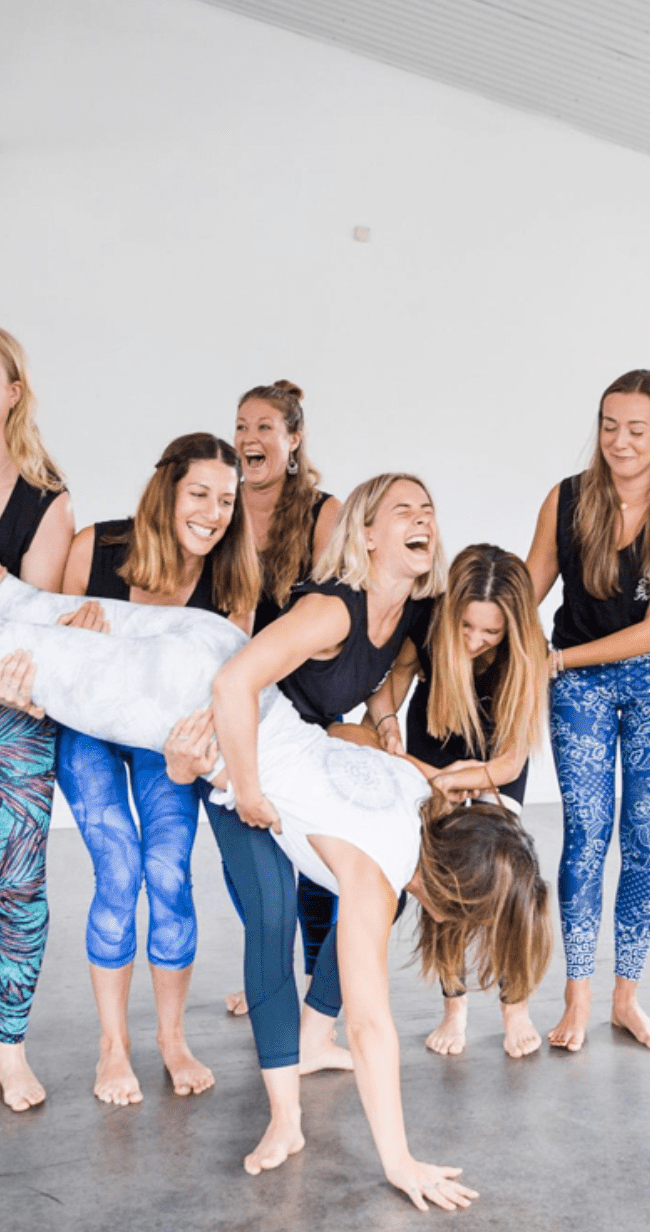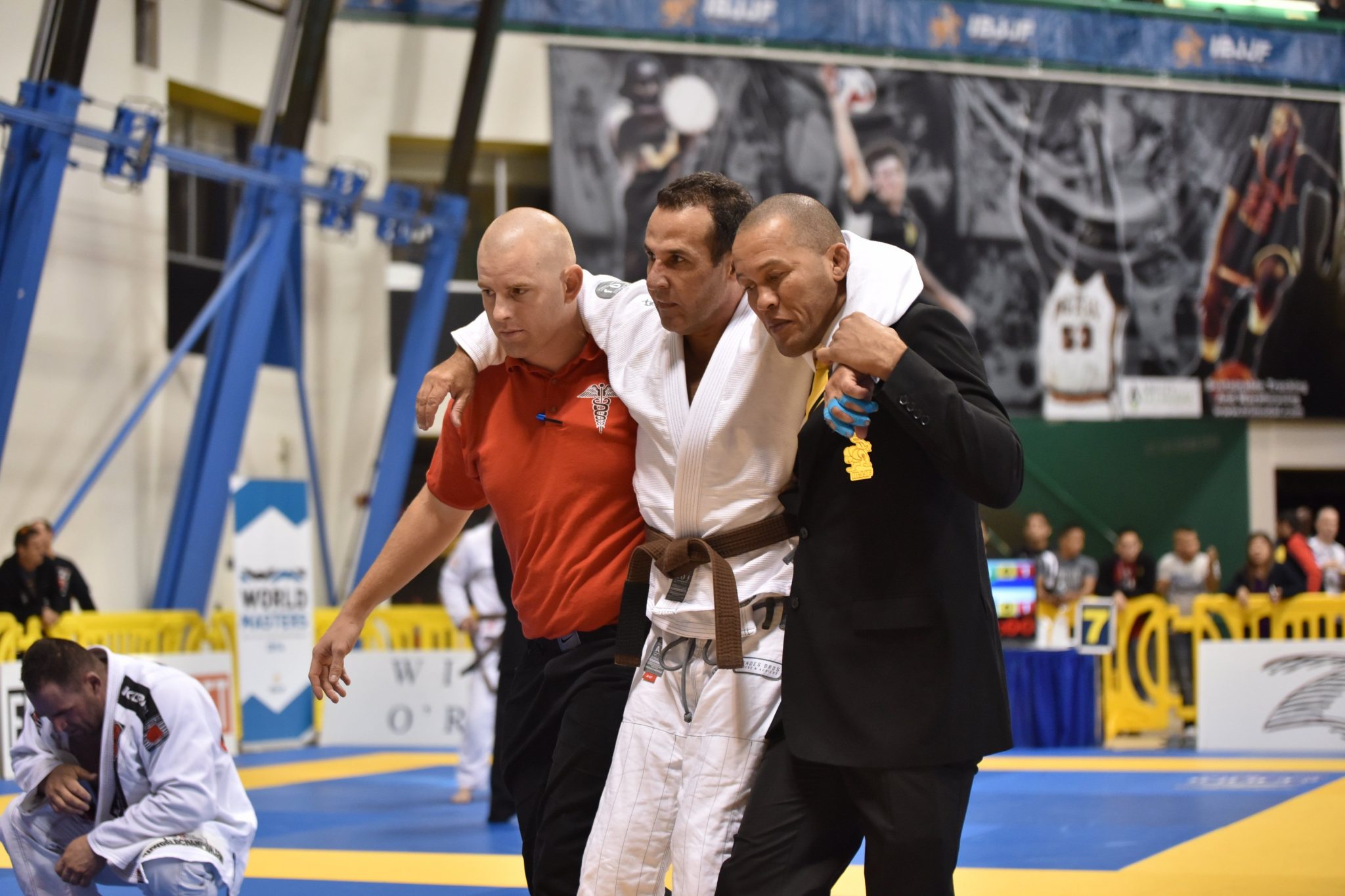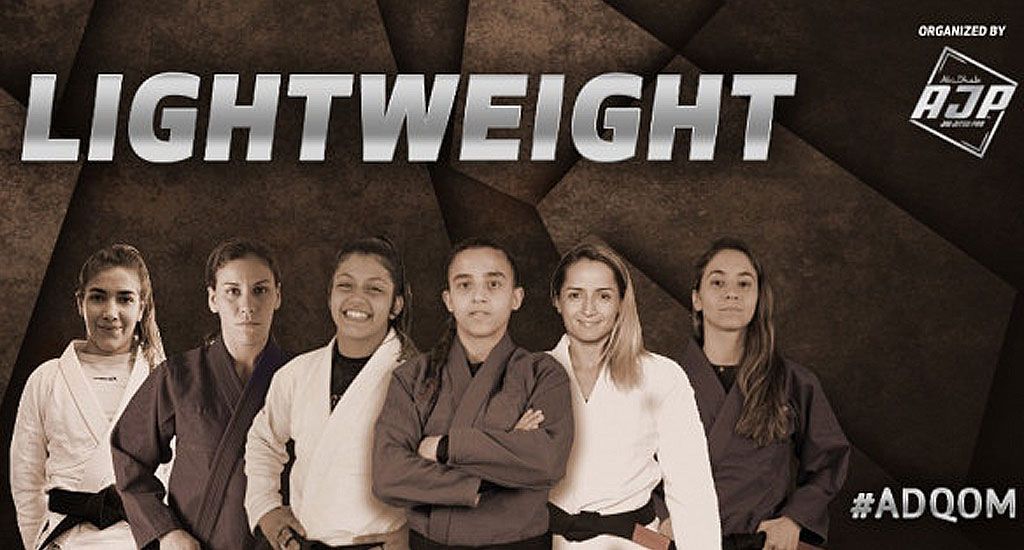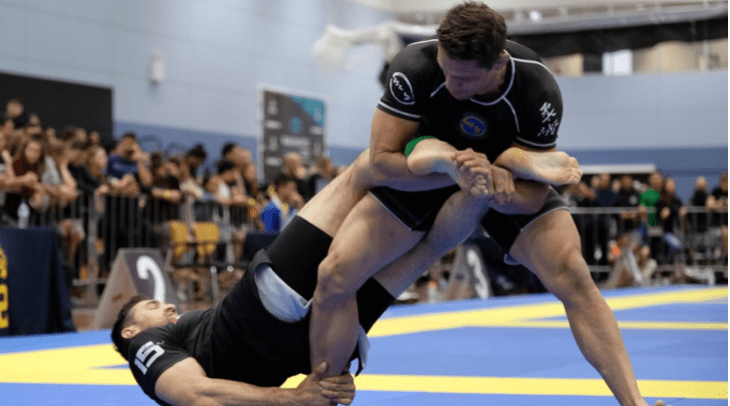
INTERVIEW WITH A PROFESSIONAL MMA FIGHTER
SJJA’s newest professor, Sergio Fernandes, is a brazilian jiu jitsu black belt, capoeira professor and professional MMA fighter, and has trained across nine different martial arts disciplines throughout his lifetime. Read all about Sergio’s personal story and why he thinks Brazilian jiu jitsu is the most effective martial art for self defence.
Tell us a bit about you: where were you born, and how did you grow up?
I was born in Franca in the State of Sao Paulo, Brazil. I was born into a very humble life, with very little recourse for life. Growing up, I played a lot of basketball and football.
As a kid, what did you want to be when you grew up?
I wanted to be a fireman and save people’s lives.
What was your first job?
My first job was at the age of 13, where I worked as a shoemaker of men’s dress shoes for many years.
What got you interested in learning martial arts?
When I was at school, a lot of kids bullied me and tried to fight me; they would punch me and kick me but I would never fight back because I’m a very peaceful person and I never wanted to fight anyone. They kept hurting my body over and over, which hurt my mentality as well because I was feeling helpless – as though I would never get out of this situation. Eventually, I realised that if I don’t confront them and try to defend myself, they will never stop bullying me. The next time they came to fight me, I stood up to them and started defending myself, and it worked; they weren’t able to do any damage like before. They started bringing different kids along to try to beat me, but I fought all of them off as well, which made them respect me, and they finally stopped trying to fight me.
Not long after that, I saw a guy kicking high and fast in a park one day, and I started talking to him and he said he was a capoeira fighter. I tried out a class at his gym and really enjoyed it, but more importantly, I liked how they were trying to instil good values into their students. They wanted to teach all the kids to be good citizens and to always be respectful. It was here at the capoeira gym that my martial arts journey began.
What made you want to start training Brazilian jiu jitsu?
After becoming a capoeira professor at the age of 23 and winning the competitions in my city, I was very eager to take on a new challenge. I watched some MMA fights in my city, and decided I really wanted to become a professional MMA fighter, which meant I needed to learn both BJJ and MMA. I spoke to a high level BJJ black belt and MMA fighter about this, but he refused to train me because he thought I just wanted to fight in the streets, so he said to me “I will teach you brazilian jiu jitsu, but not MMA.” I agreed to start training BJJ and when he watched me spar he saw that I was applying good technique, mobility, flexibility and speed which I learned from my capoeira training, and realised I was serious about becoming a professional fighter. After two weeks of watching me train, he told me: “Actually, I think you’re going to be a very good MMA fighter, so I will agree to teach you MMA as well.” This was the start of my jiu jitsu journey, and it was at his gym that I started training both BJJ and MMA in tandem.
You’re SJJA’s most experienced Professor in terms of breadth of knowledge, in that you’ve trained across nine different martial arts disciplines. Can you talk us through your experience in each of them?
- MMA: I’ve trained for 14 years, and competed in 14 MMA fights at Professional level (and won 9 of them)
- Capoeira: I’m a Professor (Red-White Belt), and competed and won Gold in a number of high level competitions in Brazil
- Brazilian Jiu Jitsu: I’m a Professor (Black Belt), and won Gold at Pan Pacific, Tokyo Open, and Master Asia
- Boxing: I won 2 boxing tournaments at the Professional level
- Muay Thai: I’m an Instructor (Blue-Black Belt), and won 2 competitions at the Semi-Professional level
- Taekwondo: I trained for 2 years (Green-Yellow Belt), and won Bronze at a competition in Brazil
- Luta Livre: I trained for 2 years, but never competed
- Greco-Roman Wrestling: I trained for 2 years, but never competed
- Judo: I trained for 6 months, but never competed
You’re trained in so many different martial arts, but you’ve chosen to teach and focus on Brazilian jiu jitsu – why is that?
Four reasons:
- I feel it’s technically superior to other martial arts, in that it’s one of the few martial arts where you can use technique to defeat an opponent who is bigger and stronger than you: I used to watch Rickson Gracie and was fascinated at how he would always win against guys who were much bigger and stronger than him. Note: Sambo Wrestling and Luta Livre are very similar to BJJ, but they have nowhere near as many gyms around the world compared to jiu-jitsu.
- For me, jiu-jitsu gives me the greatest challenge. I found BJJ was very hard for me to learn. I came from a striking background, where: if I did one striking lesson, I would know the basics of how to punch and kick. But after one lesson in jiu-jitsu, you don’t know anything. It takes months of practice just to form a solid base level of understanding – I love this about jiu-jitsu.
- The Jiu jitsu community is like no other martial arts community I’ve seen. In every BJJ gym I’ve gone to around the world, people are always so welcoming. Every BJJ gym is like a family, and no matter where in the world you are, BJJ people welcome others into the family with open arms. SJJA is no exception – I teach in multiple SJJA gyms around Sydney, and all of them have an amazing community.
- It’s the martial art I find the most fun to practise.
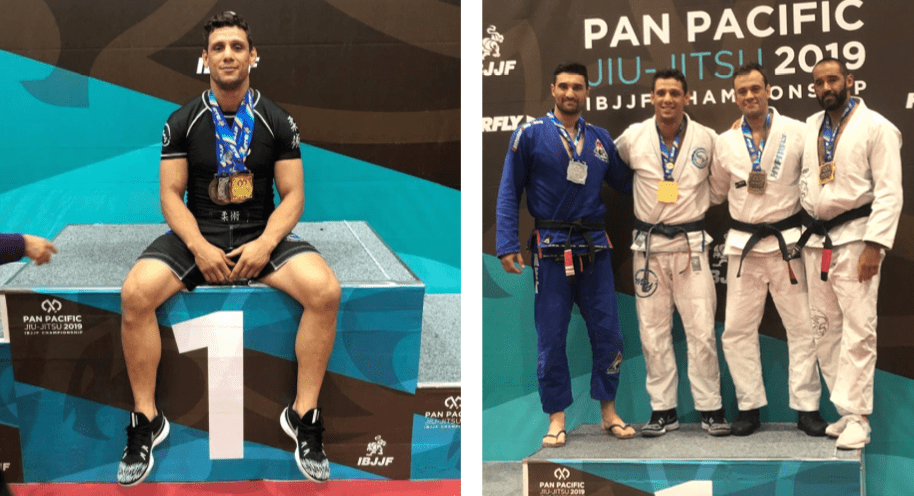
Which martial art do you think is the most effective for self-defence, and why?
Any martial art will help you in a positive way for self defence, because they all have something useful to teach you. If you’re going to fight more than one person, it is useful to know a striking martial art (eg. muay thai, boxing, capoeira) where you can punch and kick. However, if you are fighting one-on-one, I think jiu-jitsu is the best martial art to know, because most street fights end up on the ground. If you know jiu jitsu, that means you know takedowns, you know how to immobilize your opponent when you’re on the ground, and you know how to submit them, and the best part of all: you can win without throwing a single punch. In judo, for example, the focus is on takedowns and pinning your opponent, but the fight ends there. However, jiu-jitsu provides you with an end-to-end solution.
So if you want to learn self defence, I would prioritise learning jiu-jitsu, but supplement this with some striking skills, i.e. learn the basics of how to punch and kick – be it via boxing, kickboxing, muay thai, krav maga, or another striking sport.
What advice do you give to women for defending themselves on the street?
My first piece of advice is: never initiate a fight. Combat should be your last resort. Start with warning them to stay away, using a strong, loud voice. The power in your voice will showcase your confidence, and is more likely to deter the attacker.
If they do not stand down and you are able to escape, run away. If you get caught, this is where you rely on your jiu jitsu. The key to success in any fight (when adrenaline in your body is very high) is how much of your martial arts training has become an automatic response. The more you train jiu jitsu, the more your techniques will become second nature, and you don’t even have to think about your next move because they become automatic reactions to your opponent’s moves. Consistency, repetition, and improvement is the key to success in a fight.
Remember: If you are defending yourself against multiple people, never go straight to the ground or pull guard. It is okay if you are against just one person, but in the case of multiple people, you are putting yourself in a very vulnerable position as you’re at risk of all of them kicking you at the same time while you’re on the ground.
I think jiu jitsu is a really powerful martial art for girls because it teaches you so much more than the physical side of self defence: you learn a) how to control the situation, b) how to remain calm under pressure, c) the right times in a fight to stop, breathe, and give yourself time to think about your next move, and d) the best techniques for defeating someone heavier than you.
Unfortunately, if a 60kg girl punches a 100kg guy, it won’t be very effective because their size and strength can absorb most of the impact. However, a 60kg woman applying jiu jitsu techniques on a 100kg man will prove much more effective.
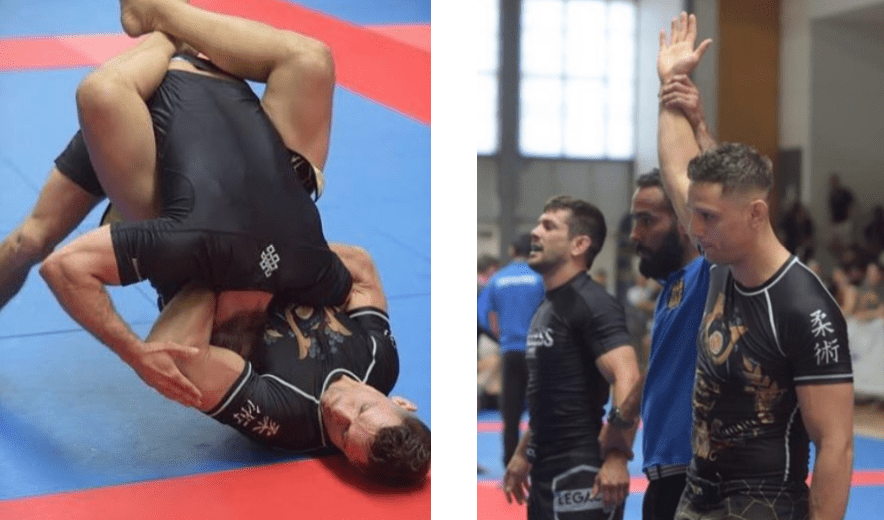
When you’re fighting in MMA, do you use moves from every different martial art? Which ones do you find the most useful and why?
I trained myself up in so many different martial arts so that I would have a well-rounded fighting game, and hopefully an advantage over other MMA fighters. When I look back at the MMA fights I won, four of them were via jiu jitsu submissions (1x guillotine, 2x chokes, and 1x arm bar), three were via TKO (3x punches), and two were won by decision. So I would say for my grappling/ground game, I definitely rely on my jiu jitsu. For my takedowns, I rely on both my jiu jitsu and greco-roman wrestling, and for striking, I use a combination of boxing, muay thai, and capoeira.
If you had one piece of advice for people who are thinking about trying out jiu jitsu, what would you say?
I am probably not the best guy to ask because I love jiu jitsu so much, so I am biased, but what I would say to them is: this sport is going to change your life. When you first join a BJJ school, you will probably say to yourself that you’re going to train twice a week, but after 1 month of training, you’re going to want to train every single day. Very quickly, you’re going to see the way you eat, think, and care for your body will change, and you will start living and breathing jiu jitsu: you will go to sleep thinking about jiu jitsu, you will wake up in the morning and think about jiu jitsu, and you will start wanting to fuel your body the right way for jiu jitsu. So I think you should definitely try out a class, because it will change your life in so many positive ways.
What advice do you have for people who are feeling demotivated to train, or feel like they aren’t making any progress?
For me, jiu jitsu is the most difficult martial art to train, but the most rewarding one to learn. You need to remember, you don’t get better at anything if you don’t sacrifice something else in return. You won’t see any evolution in your technique if you don’t train harder and more often. You need to eat, drink, live and breathe jiu jitsu if you want to improve your jiu jitsu. Personally, I view a jiu jitsu black belt as just a white belt who didn’t give up.
I have also felt demotivated in the past – this is a completely normal part of anyone’s jiu jitsu journey. Everyone’s reasons for becoming demotivated are different; for me, I would always use my weakness to motivate me. For example, whenever I would think to myself: I’m not very good at jiu jitsu, or I’m not improving, I always knew in the back of my mind that more repetition and more practise would always make me better. So I used to just put on my running shoes to get fitter, or go to the gym to get stronger, or put on my gi to go practise, because every action I did, even if it was small, was going to improve my jiu jitsu game in some way.
If you’re only able to train two times a week, then I would recommend learning and practising in other ways: watch more videos online, think about your game before you go to bed, or write down notes about your jiu jitsu game and the techniques you need to improve.
During this lockdown in Sydney, I am still working on my jiu-jitsu every day. I’ve purchased a ball and am training balance, control, sprawls, cardio, agility, and rolling forward and backwards on the ball. There is so much you can do at home! If you need some advice on how to train during lockdown, reach out to me and I can offer you some advice, or I can train you online, or in the park. I have many students I am training during this lockdown, be it private jiu-jitsu / boxing lessons via zoom, or teaching boxing and muay thai in the park.
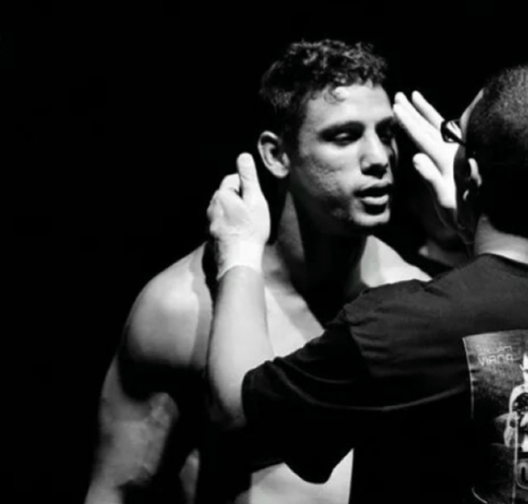
What’s next for you? What are you working on at the moment in terms of your martial arts?
COVID-19 has made it difficult to compete in high level tournaments, but I’m really looking forward to competing internationally again in jiu jitsu once the borders open up. Jiu jitsu is definitely my focus right now, but I’m also thinking about doing one or two more professional MMA fights next year before I retire from MMA.

Thank you for reading!
If you are considering starting jiu-jitsu, then have a look at some of The Best Brazilian Jiu-Jitsu Gyms in Sydney or book a free trial at SJJA Crows Nest today!
